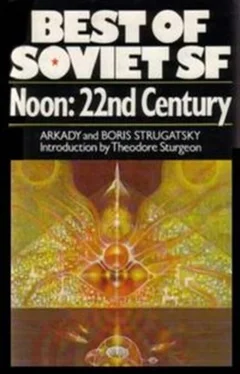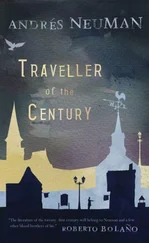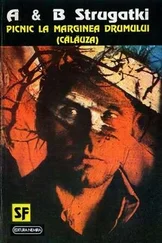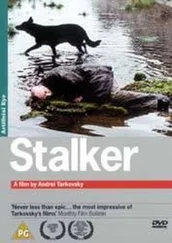On the basis of the above-mentioned information, the commission has been obliged to conclude that the first-line interplanetary craft Taimyr has been lost with all hands (Aleksei Eduardovich Zhukov, Konstantin Ivanovich Falin, George Allen Pollack, Sergei Ivanovich Kondratev, Peter Koenig, and Evgeny Markovich Slavin) as a result of a serious accident. The cause and nature of the accident remain undetermined.
—Bulletin of the International Scientific Data Center, No. 237 (9 October 2021).
After his midday meal, Sergei Kondratev took a little nap. When he woke up, Evgeny Slavin came in. Evgeny’s red hair lit up the walls—they turned pink, as at sunset. Evgeny smelled pleasantly but powerfully of an unfamiliar cologne.
“Hello, Sergei old man!” he shouted from the threshold.
And immediately someone said, “Please, talk a little more quietly.”
Evgeny nodded readily toward the corridor, walked over to the bed on tiptoe, and sat so that Kondratev could see him without turning his head. His face was joyful, exultant. Kondratev could no longer remember when he had last seen him like that. And he saw the long reddish scar on Evgeny’s face for the first time.
“Hello, Evgeny,” Kondratev said.
Evgeny’s head of flaming hair suddenly blurred. Kondratev squinted and sobbed. “Oh, for God’s sake,” he muttered angrily.
“Sorry about that. I’ve gone all to pieces here. Well, how are you doing?”
“All right, quite all right,” Evgeny said in a choked-up voice. “Everything is simply amazing! The main thing is that they’ve brought you through. I was really worried about you, Sergei. Especially at first. All by myself, the depression, the homesickness! I rush off to see you and they won’t let me in. I swear at them, and it makes no dent at all. I start talking, arguing, trying to prove that I’m a doctor myself… though what kind of a doctor am I now, anyhow?
“All right, I believe you, I believe you,” Kondratev said affectionately.
“And suddenly today Protos himself calls me. You’re really on the mend, Sergei! In ten days or so I’ll be teaching you how to drive a pterocar. I’ve already ordered you one.”
“Oh?” said Kondratev. He had a spinal column broken in four places and a torn diaphragm, and his neck had parted from his skull. In his delirium he kept imagining himself as a rag doll that had been flattened under the caterpillar track of a truck. But you could depend on Protos. The doctor was a ruddy fat man, around fifty years old (or a hundred—who could tell these days?), very taciturn and very kind. He came every morning and every evening, sat down beside the bed, and breathed out so comfortably that Kondratev at once would begin to feel better. And he was, of course, a superb doctor, if up to now he had kept alive a rag doll flattened by a truck.
“Well, what the hell,” said Kondratev. “Could be.”
“Hey!” Evgeny shouted enthusiastically. “In ten days you’ll be driving a pterocar for me. Protos is a magician, and I say that as a former doctor!”
“Yes,” said Kondratev. “Protos is a very good man.”
“A brilliant doctor! When I found out what he was working on, I realized that I would have to change professions. So I’m changing professions, Sergei! I’m going to be a writer!”
“So,” said Kondratev. “You mean the writers haven’t gotten any better?”
“Well, you see,” said Evgeny, “one thing is clear: they’re all modernists, and I’ll be the only classicist. Like Trediakovsky the poet in the eighteenth century.”
Kondratev looked at Evgeny out of half-opened eyes. Evgeny certainly was not wasting time. Dressed in the height of fashion, no doubt-shorts and a loose soft jacket with short sleeves and an open collar. Not one single seam, everything in soft, bright colors. The hair given a light, casual trim. Smooth-shaven and co-logned. He was even trying to enunciate the way the greatgrandchildren did-firmly and resonantly, and without gesticulation. And the pterocar… and only a few weeks had gone by. “Evgeny, I’ve forgotten again what year it is here,” Kondratev said.
“Two thousand one hundred and nineteen,” Evgeny answered ceremoniously. “They just say ‘one nineteen’.”
“Well then, Evgeny,” Kondratev said very seriously. “How are redheads doing? Have they survived into the twenty-second century or have they all died out?”
Evgeny answered just as ceremoniously, “Yesterday I had the honor of conversing with the secretary of the Northwest Asian Economic Council: a most intelligent man, and quite infrared.”
They laughed and looked at each other. Then Kondratev asked, “Listen, Evgeny, where did you get that slash across your face?”
“That?” Evgeny fingered the scar. “You mean you can still see it?” he asked, distressed.
“Well, naturally,” said Kondratev. “Red on white.”
“I got that the same time you got smashed up. But they promised it would go away soon. Disappear without a trace. And I believe it, because they can do anything.”
“Who are ‘they’?” Kondratev asked gravely.
“What do you mean who? People—Earthlings.”
“You mean ‘we’?”
Evgeny was silent a moment. “Of course,” he said uncertainly. “‘We.’ In one sense of the word.” He stopped smiling and looked at Kondratev attentively. “Sergei,” he said softly, “does it hurt a lot, Sergei?”
Kondratev smiled weakly and said with his eyes, No, not much. But it was still good that Evgeny had asked. “Sergei, does it hurt a lot, Sergei?”—those were good words, and he had said them well. He had said them exactly as he had on the unlucky day when the Taimyr had buried itself in the shifting dust of a nameless planet and Kondratev, during a sortie, had hurt his leg.
That had hurt a lot, although, of course, not like now. Evgeny had thrown away his movie camera and had crawled along the crumbling slope of a dune, dragging Kondratev after him and swearing furiously. And then, when at last they had managed to scramble onto the crest of the dune, Evgeny had felt Kondratev’s leg through the fabric of the spacesuit and had suddenly asked quietly, “Sergei, does it hurt a lot, Sergei?” Over the pale blue desert a hot white disk crawled into the violet sky, static hissed annoyingly in the headphones, and they sat a long time waiting for the return of the cyberscout. The cyberscout never did return—probably it had sunk into the dust—and finally they had started crawling back to the Taimyr …
“What do you want to write about?” Kondratev asked. “About our trip?”
Evgeny began to speak with animation about sections and chapters, but Kondratev was no longer listening. He looked at the ceiling and thought, It hurts, it hurts, it hurts. And as always when the pain became unendurable, an oval hatch opened in the ceiling, and a rough gray tube with tiny winking green openings slid out noiselessly. The tube came down steadily until it had almost touched Kondratev’s chest, and then stopped. Then a quiet vibrating rumble began.
“Wh-what’s that?” Evgeny asked, jumping up.
Kondratev remained silent, his eyes closed, delightedly feeling the mad pain subside, disappear.
“Perhaps I had better leave?” Evgeny said, looking around.
The pain had gone. The tube retracted noiselessly upward, and the hatch in the ceiling closed.
“No,” said Kondratev. “That’s just treatment. Sit down, Evgeny.” He tried to remember what Evgeny had been talking about. Yes—a fictionalized sketch to be called Across the Light Barrier . About the flight of the Taimyr . About the attempt to slip through the light barrier. About the accident that had brought the Taimyr across a century.
Читать дальше












